Amstrad was a British electronics company, founded in 1968 by Alan Sugar at the age of 21. The name is a contraction of Alan Michael Sugar Trading. It was first listed on the London Stock Exchange in April 1980. During the late 1980s, Amstrad had a substantial share of the PC market in the UK. Amstrad was once a FTSE 100 Index constituent, but since 2007 has been wholly owned by Sky UK. As of 2006, Amstrad's main business was manufacturing Sky UK interactive boxes. In 2010, Sky integrated Amstrad's satellite division as part of Sky so they could make their own set-top boxes in-house.

The Amstrad PCW series is a range of personal computers produced by British company Amstrad from 1985 to 1998, and also sold under licence in Europe as the "Joyce" by the German electronics company Schneider in the early years of the series' life. The PCW, short for Personal Computer Word-processor, was targeted at the word processing and home office markets. When it was launched the cost of a PCW system was under 25% of the cost of almost all IBM-compatible PC systems in the UK, and as a result the machine was very popular both in the UK and in Europe, persuading many technophobes to venture into using computers. The series is reported to have sold 1.5 million units. However the last two models, introduced in the mid-1990s, were commercial failures, being squeezed out of the market by the falling prices, greater capabilities and wider range of software for IBM-compatible PCs.
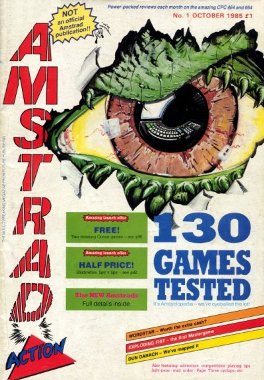
Amstrad Action was a monthly magazine, published in the United Kingdom, which catered to owners of home computers from the Amstrad CPC range and later the GX4000 console.

David Rowland Langford is a British author, editor, and critic, largely active within the science fiction field. He publishes the science fiction fanzine and newsletter Ansible and holds the all-time record for most Hugo Awards, with a total of 29 wins.
PC Gamer is a magazine and website founded in the United Kingdom in 1993 devoted to PC gaming and published monthly by Future plc. The magazine has several regional editions, with the UK and US editions becoming the best selling PC games magazines in their respective countries. The magazine features news on developments in the video game industry, previews of new games, and reviews of the latest popular PC games, along with other features relating to hardware, mods, "classic" games and various other topics.

LocoScript is a word processing software package created by Locomotive Software and first released with the Amstrad PCW, a personal computer launched in 1985. Early versions of LocoScript were noted for combining a wide range of facilities with outstanding ease of use. This and the low price of the hardware made it one of the best-selling word processors of the late 1980s. Four major versions of LocoScript were published for the PCW, and two for IBM-compatible PCs running MS-DOS. LocoScript's market share didn't expand with the PC versions, which were not released until after Windows had become the dominant PC operating system.
PC World is a global computer magazine published monthly by IDG. Since 2013, it has been an online-only publication.
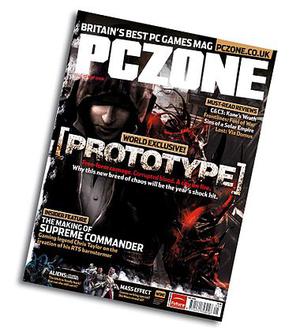
PC Zone, founded in 1993, was the first magazine dedicated to games for IBM-compatible personal computers to be published in the United Kingdom. Earlier PC magazines such as PC Leisure, PC Format and PC Plus had covered games but only as part of a wider remit. The precursor to PC Zone was the award-winning multiformat title Zero.

SFX is a British magazine covering the topics of science fiction and fantasy. Its name is a reference to the abbreviated form of "special effects".
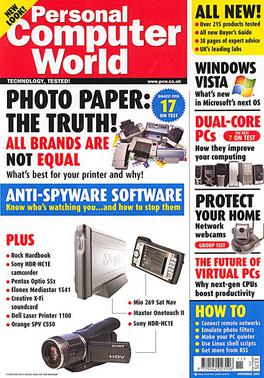
Personal Computer World (PCW) was the first British computer magazine. Although for at least the last decade it contained a high proportion of Windows PC content, the magazine's title was not intended as a specific reference to this. At its inception in 1978 'personal computer' was still a generic term The magazine came out before the Wintel platform existed; the original IBM PC itself was introduced in 1981. Similarly, the magazine was unrelated to the Amstrad PCW.

PC Plus was a computer magazine published monthly from 1986 until September 2012 in the UK by Future plc. The magazine was aimed at intermediate to advanced PC users, computer professionals and enthusiasts. The magazine was specifically for users of PCs and related technologies so features articles were undiluted by coverage of other platforms. It began its life specifically as a magazine aimed at the Amstrad PC user.
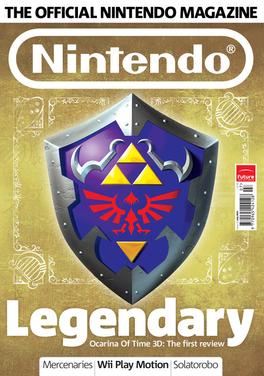
Official Nintendo Magazine, or ONM, was a British video game magazine that ran from 2006 to 2014 that covered the Nintendo DS, Nintendo 3DS, Wii, and Wii U video game consoles released by Nintendo.
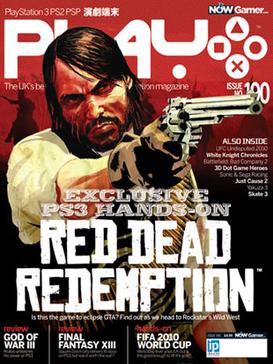
Play is a monthly magazine produced by Future plc in the United Kingdom, which reports on Sony's PlayStation product range. It features news, reviews, and previews concerning upcoming PlayStation titles. In addition to being sold in the UK, PLAY is also sold in Australia and as an import in the United States.
Apricot File was a British magazine catering to users of early Apricot Computers microcomputer systems. It was based in London, published by TP Group and edited throughout its lifetime by Dennis Jarrett. The magazine was in circulation between 1985 and 1988.
Country Homes & Interiors is published by Future plc and is the only magazine in the UK dedicated to modern country style.
In the November 1980 issue of the UK's Personal Computer World, there was an article written by David Tebbutt, about his visit to the Menlo Park Library where the "ComputerTown USA!" a self-help computer literacy movement, started by the People's Computer Company, was based. That article and the regular CTUK column/page in future issues of PCW in turn sparked a widespread UK based self-help computer literacy movement, called "ComputerTown UK!". Within a few months over 20 local groups sprang up. (See CTUSA! Newsletter Issue 18 Vol 3 No 5 Sept/Oct 1982)

Batman is a 1986 isometric action-adventure game by Ocean Software for the Amstrad PCW, Amstrad CPC, ZX Spectrum, and MSX, and the first Batman game developed. The game received favourable reviews. An unrelated Batman game was released two years later, titled Batman: The Caped Crusader.

Fun School is a series of educational packages developed and published in the United Kingdom by Europress Software, initially as Database Educational Software. The original Fun School titles were sold mostly by mail order via off-the-page adverts in the magazines owned by Database Publications. A decision was made to create a new set of programs, call the range Fun School 2, and package them more professionally so they could be sold in computer stores around the UK. Every game comes as a set of three versions, each version set to cater for a specific age range.
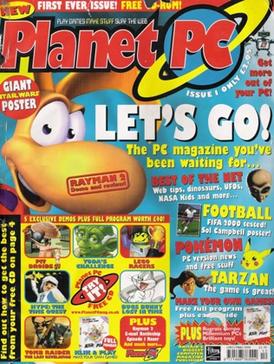
Planet PC was a British PC gaming magazine aimed at pre-teens, first published in December 1999. It was issued monthly by Future plc in Bath, Somerset, and was backed by a marketing budget of £50 thousand. Similar magazines published by Future included PC Format, for which Planet PC was hoped to be a feeder. Planet PC cost £2.95 per issue, with its target market being eight-to-twelve-year-old male PC users. During the year 2000, the magazine had a circulation of 20,181. Its editor was David Bradley, its associate editor was Chris James, and its publisher was James Binns. In October 1999, two months before the release of the first issue, Binns explained that Planet PC would fill a gap seen as "too old and ... too expensive for [the] younger market".

Two Complete Science-Adventure Books was an American pulp science fiction magazine, published by Fiction House, which lasted for eleven issues between 1950 and 1954 as a companion to Planet Stories. Each issue carried two novels or long novellas. It was initially intended to carry only reprints, but soon began to publish original stories. Contributors included Isaac Asimov, Robert A. Heinlein, Arthur C. Clarke, Poul Anderson, John Brunner, and James Blish. The magazine folded in 1954, almost at the end of the pulp era.














